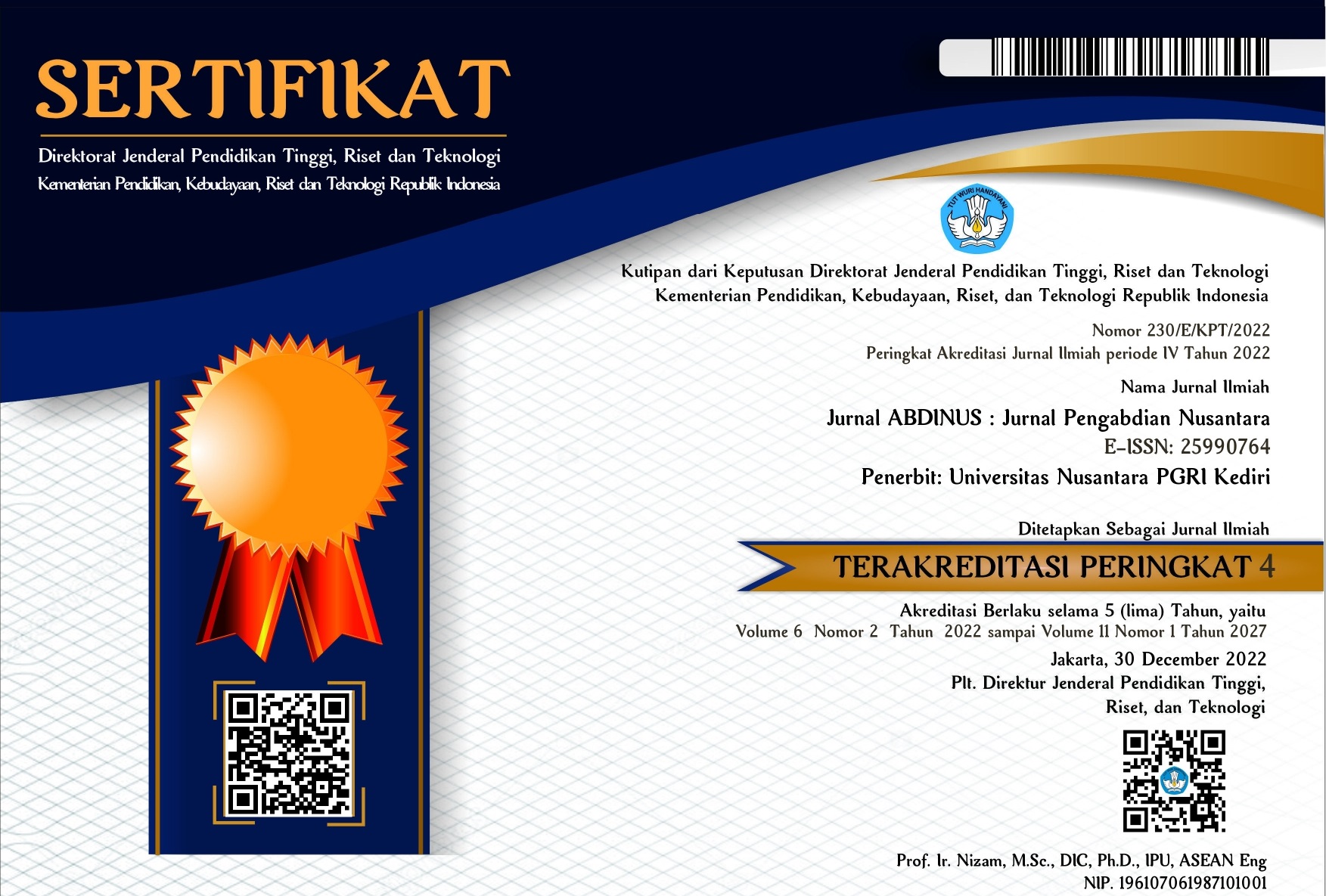Pemberdayaan Ekonomi Pesantren Melalui Pengembangan Bisnis Usaha Mandiri
DOI:
https://doi.org/10.29407/ja.v6i2.16575Keywords:
Economic Empowerment, Sharia Financial Economics, Economic Recovery, Maluku, Islamic Boarding SchoolsAbstract
The potential of sharia economy in Maluku is very large. Natural resources and human resources can be the main capital for the development of the Sharia economy in Maluku, as well as a catalyst for Maluku's economic growth in the future. Pondok Pesantren (Islamic Boarding Schools) are expected to participate in encouraging regional economic development with business activities in various fields. In facing the Industrial Revolution 4.0, Pondok Pesantren are expected to become a new economic force, in addition to their main function in the field of education. The seminar, entitled Pondok Pesantren Economic Empowerment through Independent Business Development, in the Salam Fest 2021 series in Ambon is expected to be able to trigger the economic acceleration of Maluku after the pandemic, as well as support the creation of regional economic recovery by strengthening Halal Value Chain through the development of MSMEs, increasing Pondok Pesantren self-reliance and increasing community participation on Sharia economics.
Downloads
References
Ahmad, K.B. (2004). Metamorfosis Pemikiran Intelektual Muda NU: Suatu Pandangan dari Outsider NU,” Millah, vol. 4, no. 2, pp. 111–126
Ahmad, K.B. (2010). Pesantren Sebagai Pusat Peradaban Pendidikan Islam : Pengalaman Indonesia untuk Asia Tenggara. Edukasi: Jurnal Penelitian Pendidikan Agama dan Keagamaan, vol. 8, no. 2, pp. 3939–3966
Azra, A. (2005). Jaringan Ulama Timur Tengah dan Kepulauan Nusantara Abad XVII & XVIII: Akar Pembaruan Islam Indonesia, 2nd ed. Jakarta: Prenada Media
Azra, A. and J. Jamhari. (2006). Pendidikan Islam Indonesia Dan Tantangan Globalisasi: Perspektif Sosio- Historis. dalam Mencetak Muslim Modern: Peta Pendidikan Islam Indonesia, J. Burhanuddin and D. Afrianty, Eds. Jakarta: RajaGrafindo Persada
Basyari, I. (2019). Sebagian Kasus Kenakalan Remaja Dipicu Media Sosial. kompas.id. https://kompas.id/baca/nusantara/2019/12/20/sebagian-kasus-kenakalan-remaja-dipicu-media-sosial/
C. Geertz, C. (1976). The Religion of Java. Chicago: University of Chicago Press
Faizin, I. (2017). Lembaga Pendidikan Pesantren dan Tantangan Global. Journal of Chemical Information and Modeling, 8(9), 1–58. https://doi.org/10.1017/CBO9781107415324.004
Gazali, E. (2018). Pesantren Di Antara Generasi Alfa Dan Tantangan Dunia Pendidikan Era Revolusi Industri 4.0. Oasis, 2(2), 94–109. https://doi.org/10.5281/zenodo.3376797
Muchsin, M.B., Y. A. Gani and M. I. Islamy. (2009). Upaya Pondok Pesantren Dalam Pemberdayaan Masyarakat Sekitar Hutan,” Wacana, vol. 12, no. 2, pp. 376–401
Rahman, A. (2019). Pendidikan Islam di Era Revolusi Industri 4.0. Komojoyo Press.
Rembangy, M. (2010). Pendidikan Transformatif: Pergulatan Kritis Merumuskan Pendidikan di Tengah Pusaran Arus Globalisasi. Teras
Schwab, K. (2017). The Fourth Industrial Revolution. Crown Business
Scoop, I. (2018). Industry 4.0: the fourth industrial revolution – guide to Industrie 4.0. [Online]. Available: https://www.i-scoop.eu/industry- 4-0/. [Accessed: 03-Agt- 2021].
Suharto, B. (2016). Marketing Pendidikan : Menata Ulang PTKI Menghadapi Pasar Bebas ASEAN. Yogyakarta: LKiS
Tan, C. (2014). Educative Tradition and Islamic Schools in Indonesia,” Journal of Arabic and Islamic Studies, vol. 14, no. 3, pp. 47–62















